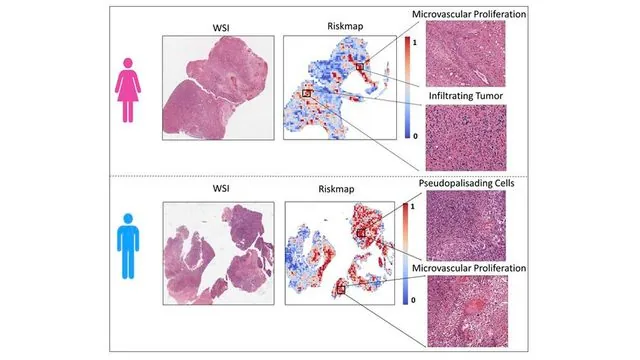
Revolutionary AI Study Unveils Gender-Specific Brain Tumor Risks: A Breakthrough in Glioblastoma Prognosis!
2024-10-08
Author: Ming
Introduction
Recent research has thrown a spotlight on a startling trend in the world of brain cancer—specifically glioblastoma, a notoriously aggressive form of the disease. Historically, a higher incidence of glioblastoma has been observed in men compared to women, coupled with the tumors manifesting greater aggression in the male population. In a quest to identify the factors that determine the speed and severity of tumor growth, researchers at the University of Wisconsin-Madison are harnessing the power of artificial intelligence.
The Research Team and Their Approach
Led by Professor Pallavi Tiwari, an expert in radiology and biomedical engineering, this groundbreaking study has been published in the journal Science Advances. Tiwari emphasizes the vast amount of data collected during a cancer patient’s journey that, until now, has not been fully utilized due to its fragmented analysis. “AI has the potential to integrate this data in meaningful ways,” she states.
Since joining UW-Madison in 2022 to spearhead the university's AI initiative in medical imaging, Tiwari has been at the forefront of exploring AI's capabilities in analyzing large datasets of medical images to identify patterns that can enhance clinical decision-making for oncologists and their patients.
Challenges in Cancer Care
“Cancer care encompasses a myriad of challenges from diagnosis to treatment outcomes,” Tiwari explains, underscoring the importance of a comprehensive approach. The researchers focused on digital images of pathology slides—thin sections of tumor samples—to uncover features that might predict tumor growth rates and subsequently patient survival.
Significance of Findings
With glioblastoma posing a dire prognosis—averaging merely 15 months of survival post-diagnosis—Tiwari notes, “A significant challenge remains in predicting patient outcomes and durations of life after diagnosis.” Understanding these outcomes is critical as it influences treatment plans and ultimately impacts patients’ quality of life.
The AI Model Development
To confront this challenge, Tiwari and her former graduate student Ruchika Verma developed an AI model capable of detecting subtle patterns in pathology images that could easily escape the human eye. The model was trained on data from over 250 glioblastoma patients, learning to recognize distinctive tumor characteristics such as cell type abundance and the tumors' invasive behaviors.
Gender-Specific Insights
Importantly, the AI model took into account sex-based differences in outcomes, identifying risk factors tied to tumor aggressiveness for both men and women. For females, tumors that invaded surrounding healthy tissue indicated higher risks. In contrast, the presence of pseudopalisading cells—an indication of necrosis—was linked to more aggressive tumors in males.
Future Implications
This significant research promises to evolve glioblastoma care towards a more personalized approach, aligning treatment strategies with the unique biological signatures of tumors in different sexes. “By revealing these distinct patterns, we aspire to open doors for tailored treatments and deepen the understanding of biological differences in these tumors,” Verma notes.
Broader Research Goals
In addition to glioblastoma, Tiwari and her team are extending their research into other cancer types using MRI data, including pancreatic and breast cancers, with the ultimate goal of enhancing patient outcomes across the board.
Conclusion
Tiwari's ambitions extend beyond her immediate research, as she aims to influence the broader landscape of AI in healthcare through UW-Madison’s RISE-AI and RISE-THRIVE initiatives. “With our diverse expertise across engineering and medical fields, UW-Madison is poised to lead the charge in translating AI advancements into clinical environments,” she claims, signaling an exciting future for cancer care.
Keep your eyes on this remarkable intersection of AI and oncology—it may very well redefine how we understand and treat brain tumors. Stay tuned for what could be the next breakthrough in personalized medicine!


 Brasil (PT)
Brasil (PT)
 Canada (EN)
Canada (EN)
 Chile (ES)
Chile (ES)
 España (ES)
España (ES)
 France (FR)
France (FR)
 Hong Kong (EN)
Hong Kong (EN)
 Italia (IT)
Italia (IT)
 日本 (JA)
日本 (JA)
 Magyarország (HU)
Magyarország (HU)
 Norge (NO)
Norge (NO)
 Polska (PL)
Polska (PL)
 Schweiz (DE)
Schweiz (DE)
 Singapore (EN)
Singapore (EN)
 Sverige (SV)
Sverige (SV)
 Suomi (FI)
Suomi (FI)
 Türkiye (TR)
Türkiye (TR)